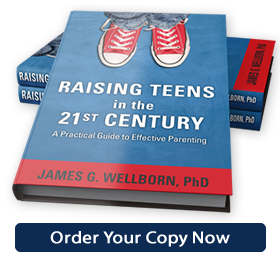Dec 16, 2013 Bonding over Board Games
The weather is turning cold but without the benefit of snow to play in. It is the perfect time for competitive indoor games to bring the family together. There are always classic board games like Monopoly and checkers. But, there are also a whole range of games that are both fun and test your mental skills like Settlers of Catan (a strategy game that anyone can play but can be wickedly competitive). (You can find an extensive list of challenging board games here and here.) There are games that require some eye hand coordination along with strategy like Jenga (stacking rectangular wooden pieces until it topples over). There are games that require you to match numbers (e.g., dominoes) …
Dec 16, 2013 Cyber Citizenship Part 4: Respect
As citizens of the cyber community, teenagers have a responsibility to be aware of the different aspects of the cyber world (see previous column). It is also important for them to know about how to keep themselves safe and secure online (see other previous column). Finally, teenagers have a responsibility as cyber citizens to respect the laws of the online community.
Rights
While the cyber world does not have a bill of constitutionally protected rights such as those enjoyed by citizens of the United States (see the US Constitution), your teenager should still be required to respect certain unalienable rights: life (e.g., right for fair and reasonable treatment online), liberty (e.g., right to basic freedoms) and pursuit of happiness (e.g., right to explore personal interests without undue interference). These rights …
Dec 16, 2013 Cyber Citizenship Part 3: Cyber Safety
The cyber world has risks and dangers just like the real world. It would not be safe for your kid to walk alone late at night to a high crime neighborhood asking strangers where to pay cash for an expensive video game system. What if your kid then gave your house key to a stranger who offered to help and asked them to drop it off sometime when no one was home? Teenagers need to know how to keep themselves safe, both on and off line. This means understanding the issues of privacy and security in the cyber world.
Privacy
Cyber privacy is about revealing or withholding information from others. It is the option of allowing others to have access to personal information. Privacy in the cyber world is more …
Dec 02, 2013 Cyber Citizenship Part 2: Increasing Teens Cyber Awareness
If your kids are going to be good cyber citizens, they should be informed about the different areas that make up their cyber world. This includes their personal information (i.e., identity), traces of their online presence (i.e., footprint), the various kinds of creative products that belongs to them and to other people (i.e., property) and the various ways to relate to and interact with other people (i.e., relationships).
Cyber Identity. There are a range of ways your kid can be identified and recognized online. It starts with the online names they use for various accounts as well as their online addresses (e.g., email, texting number, social media account, etc.). Then, there are the more traditional forms of identity such as name, home town, school they attend, home address, or phone …
Nov 30, 2013 Cyber citizenship Part 1: Helping Teenagers Be Good Netizens
When your kids plug into the internet or the cellular networks, they instantly become full-fledged members of a worldwide community. They have instant access to every other person who is also wandering around in that world. And, of course, someone coined a cute name for it: Netizens. (Well, I refuse to refer to them by that stupid name.) But it is worth thinking through the implications for your kid (and all of us really) being a contributing member of this global, extended community. Immediate access, physical distance and the perceived anonymity of the cyber world causes humans no end of trouble. That is doubly, triply, true for adolescents. Kids need to know how to behave in a civilized way, even, and, maybe especially, online. The old fashioned (and sadly rarely …


